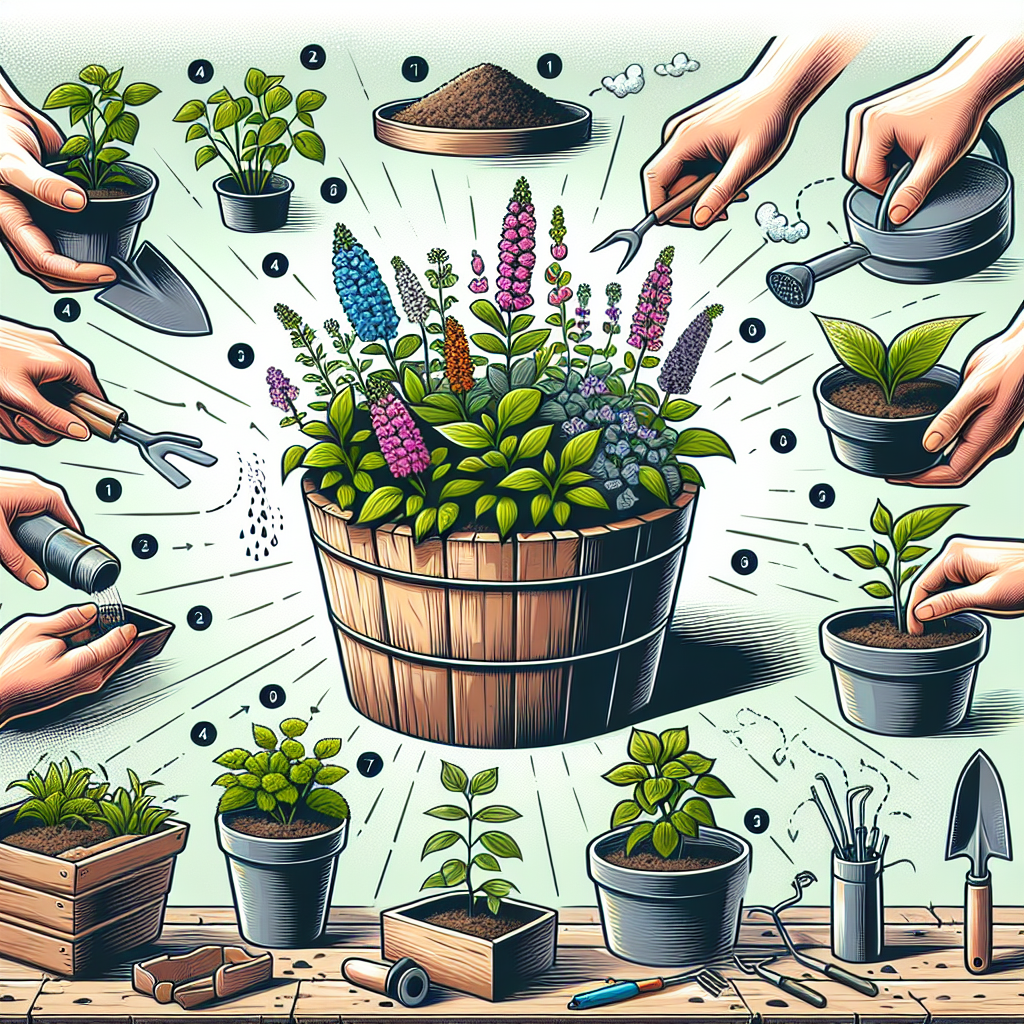body {
font-family: Arial, sans-serif;
line-height: 1.6;
margin: 0 auto;
max-width: 800px;
padding: 20px;
}
h1 {
text-align: center;
}
h2 {
margin-top: 20px;
}
p {
margin-bottom: 20px;
}
Tips and Tricks for Successful Container Gardening
Container gardening is a great way to enjoy fresh herbs, flowers, and vegetables even if you don’t have access to a traditional garden space. Whether you’re new to container gardening or looking to improve your skills, these tips and tricks will help you create a thriving container garden.
Choose the Right Containers
When it comes to container gardening, the type of container you choose can make a big difference in the success of your plants. Make sure your containers have drainage holes to prevent water from pooling at the bottom. Additionally, choose containers that are large enough to accommodate the root systems of your plants as they grow.
Select the Right Soil
It’s important to use high-quality potting soil specifically formulated for container gardening. This type of soil is light and well-draining, which helps prevent overwatering and root rot. Avoid using garden soil in containers as it tends to compact and restrict root growth.
Provide Adequate Drainage
Ensure that your containers have proper drainage by adding a layer of gravel or broken pottery pieces at the bottom before adding soil. This will prevent water from collecting at the bottom of the container, which can lead to root rot.
Choose the Right Plants
Not all plants thrive in containers, so it’s important to choose plants that are well-suited for this growing environment. Herbs like basil, cilantro, and mint, as well as vegetables like tomatoes, peppers, and lettuce are popular choices for container gardening. Consult with your local nursery or garden center for recommendations based on your specific growing conditions.
Water Appropriately
Proper watering is essential for container gardens. Check your plants regularly and water when the top inch of soil feels dry to the touch. Be careful not to overwater as this can lead to root rot. Consider investing in a moisture meter to accurately gauge soil moisture levels.
Fertilize Regularly
Container plants require regular fertilization since nutrients can leach out of the soil more quickly than in-ground plants. Use a balanced fertilizer or organic compost every few weeks during the growing season to promote healthy growth and blooming.
Prune and Deadhead
To keep your container garden looking its best, regularly prune back overgrown foliage and deadhead spent flowers. This not only improves the appearance of your plants but also encourages new growth and flowering.
Protect from Pests
Pests like aphids, spider mites, and caterpillars can wreak havoc on container plants if left unchecked. Inspect your plants regularly for signs of pests and apply insecticidal soap or neem oil as needed to control infestations.
Maintain Proper Light Levels
Most plants require at least six hours of sunlight per day to thrive. Make sure your containers are placed in a location that receives adequate sunlight based on the needs of your specific plants. If natural light is limited, consider supplementing with grow lights.
Clean Containers Regularly
To prevent disease buildup in your containers, clean them regularly with a mixture of water and mild dish soap. Remove any dead plant material or debris from the surface of the soil as well.
In Conclusion:
In conclusion,`container gardening` offers many benefits including versatility,
simplicity,and beauty.It’s an excellent wayto enjoy nature even if
you live`in an apartmentor don’t have access`to traditional
gardening space.By following these tipsand tricks,you’ll be ableto
createa successful container gardenthat will provideyou with fresh herbs,
flowers,and veggies all season long!```Stay consistentwith care,don’t be afraidto experimentwith differentplant
combinations,and most importantly,hav fun watchigyour garden
grow!`”<
`
`













